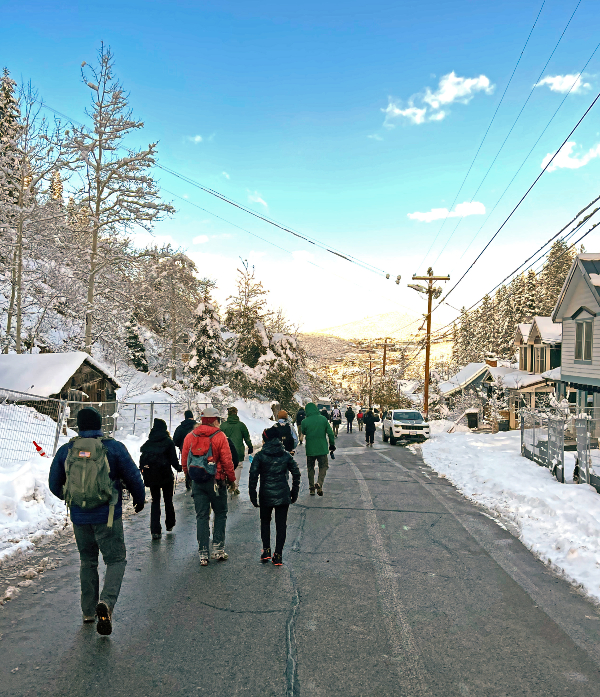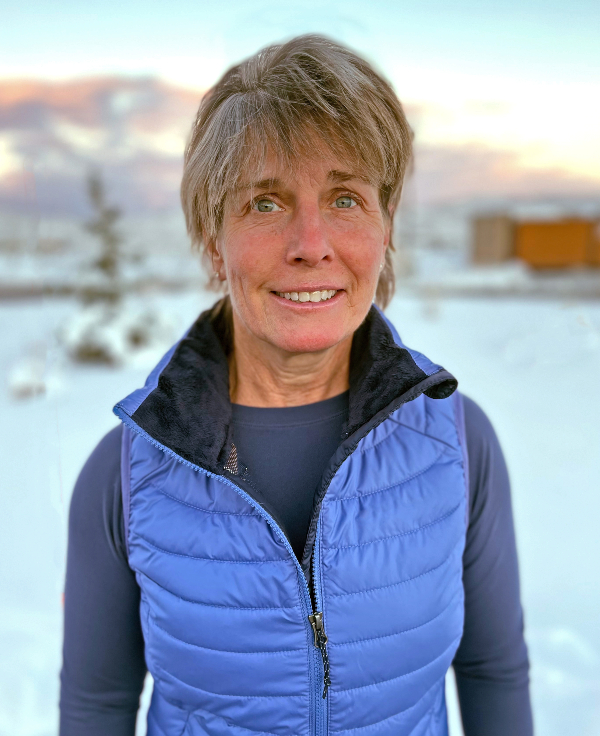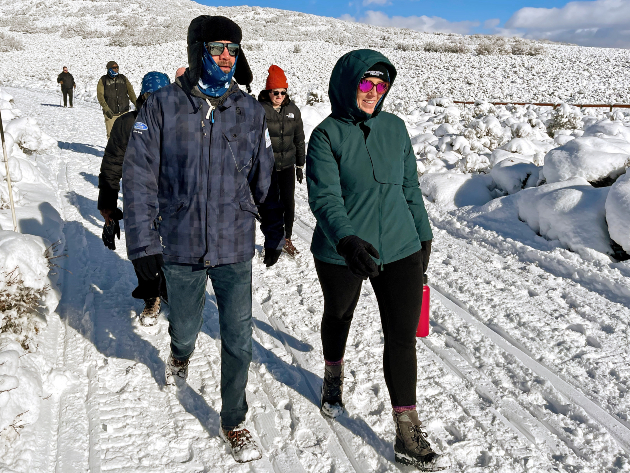Serving After Service: Woman Warrior Finds New Purpose Through Wounded Warrior Project

For Caryn Finch-Collier, retirement is an opportunity to continue serving – even after dedicating more than 35 years of military service to her country.
As an Army major, Caryn is used to leading and being a rock for other people. Her inner strength got her through enlisted service, officer training, and 16 years of service as an officer. She and her husband raised four children and have nine grandchildren. Her family is active in their community and helps others through a church ministry for veterans and through veterans service organizations, like Wounded Warrior Project® (WWP).
Fitting In with Wounded Warrior Project
Caryn began participating in WWP activities after she retired from the military. Her involvement in WWP’s Project Odyssey® opened doors to continue using her leadership skills to guide other servicemen and women through the transition into civilian life.
Project Odyssey® is a 12-week goal-focused mental health program that traditionally begins with an in-person week of adventure-based learning. Veterans who attend learn coping skills to overcome post-traumatic stress disorder (PTSD) symptoms and develop new tools for mental resilience. The program brings veterans together to restore the camaraderie they lost when they left the military.
Caryn and her civilian husband had signed up for a couples Project Odyssey in March 2020, which they attended virtually because of the pandemic. Caryn’s first in-person Project Odyssey experience was a female-only workshop months later.
“I was ecstatic to be there. It was a good fit for me. People are receptive to what you have to say and there’s a camaraderie and a bond among veterans,” Caryn said. “I also felt that I could help others. At the beginning of my military career, I struggled with trying to be heard on stuff that happened to me. Now I feel that I have a voice and I can give others a voice.”

Using Her Voice to Lift and Inspire Others
At the conclusion of Caryn’s second Project Odyssey, WWP staff invited her to become a peer mentor after seeing the power she had to lift others up. She attended peer mentor training provided by WWP, and most recently joined her first co-ed Project Odyssey as a peer mentor. Taking place over Veteran’s Day weekend, this Project Odyssey at the National Ability Center in Park City, Utah, would be one Caryn would never forget.
The National Ability Center hosts people of all abilities to build confidence and skills through sports, recreation, and education. It is a fitting place for WWP’s Project Odyssey to bring together a group of warriors who want to break down barriers and continue to serve.
It was special for Caryn for two main reasons. Being her first Project Odyssey as a peer mentor, she experienced it all from a different perspective.
“Now that I’m a peer mentor I’m able to see the warriors come to the Project Odyssey not really knowing what to expect,” Caryn said. “Then I see the connection and camaraderie from day one to the time they leave and I know they carry that experience for a lifetime. I’m honored to be a part of that and just help guide and facilitate.”
This Project Odyssey in Utah was also dedicated to raising awareness of veteran suicide. Together, participants went on a 17-mile hike to remember the 17 veterans who die by suicide each day.
“It was significant that we were there not only to focus on improving our own resilience and psychological flexibility but to bring awareness about veteran suicide prevention,” Caryn said.
“The hiking was amazing,” Caryn added. “We got to see scenery, we got to have camaraderie as we’re walking, we got to interact with other people, and we were able to be with each other and know that we have each other’s backs.”

“Girls Don’t Join the Army”
Caryn doesn’t have to say she’s been breaking down barriers for decades. She brushes off stereotypes in a lighthearted and subtle way. But a long career in the military is exceptional for women. Caryn started in 1981 when she joined the Army to help pay for college.
“My parents told me I had to go to college – and I had to work to pay for it,” Caryn recalled. “I went to school full time and worked full time for one semester. Then decided on my own to join the Army and get them to pay for college. I joined the military and THEN told my parents.”
They are loving parents, and they have a good relationship with Caryn to this day. But back then, like many other parents, Caryn remembers her folks’ reaction was, “girls don’t join the Army!”
Caryn persisted and built a career and a family of her own over the next 30 years. If you ask her, she’ll admit that “not many women serve for that long in the Army.”
Before Caryn retired, she was already part of her church’s military ministry. She also joined the local chapter of Veterans of Foreign Wars (VFW), where she’s only the third female on the leadership team.
She is grounded in family and service and doesn’t take herself too seriously. “My husband, who is a civilian, makes fun of me sometimes. If he hears me on the phone with a military friend and I’m speaking in acronyms, he’ll sarcastically say, “did you remember your ABCD and QRST today?”
Prioritizing Mental Health in All Stages of Military Service
Caryn would like servicemen and women to prioritize and think about mental well-being the same way they think about physical health, both while in service and upon retirement.
“There’s a huge stigma about admitting that you need help,” Caryn said. “Back in 1981, when I enlisted, if you even alluded to any symptoms, you were cut off. Everything was geared toward a façade of toughness. ‘Are you mentally tough? Yes!’”
“In reality, if it’s OK to seek help when you break your leg, it’s OK to be seen when you have mental health symptoms – you can ask for help just like you would for a physical injury.”
Learn more about Project Odyssey and other programs and services WWP provides at no cost to veterans and their families.
Contact: Raquel Rivas – Public Relations, rrivas@woundedwarriorproject.org, 904.426.9783
About Wounded Warrior Project
Since 2003, Wounded Warrior Project® (WWP) has been meeting the growing needs of warriors, their families, and caregivers — helping them achieve their highest ambition. Learn more.